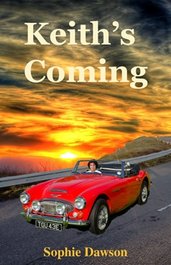|
Since I’ve been writing I’ve been reading many more blogs.  I’ve learned a lot about writing, I’ve commented on posts, and some posts I’ve skipped. Why skip posts on topics I’m interested in? In a very few words: length and format. I read a lot so I’m not afraid to read. The blog topics I’m interested in should encourage me to read the posts. The fact that I skip some without reading past the title is telling. The length is the first item that is off putting, and how the paragraphs break, if there are any, are the second.  We should all want to write tight, using as few words as possible to convey the idea or concept. If a blog is 1000 words long followed by a 200 word author bio, it’s not tight writing. A blog is rejected if the opening paragraph is 300 words long. I’ve written posts which were not much longer, and broken it into different paragraphs. Formatting posts so they are eye friendly is an important consideration for the writer. Many people are not strong readers. They read slower and may have very little confidence they can read, or understand what they read. If the writer formats the post with long paragraphs, the insecure reader may skip an article. They have then missed a post they might have enjoyed, possibly learning something. The author has lost an opportunity for a repeat reader. The same is true for lengthy posts. To a ‘weak’ reader a long post, just like a poorly formatted one, will scare her off before she even begins. By writing tight and keeping the posts well structured, hopefully readers of any strength will choose to read the posts. With reading comes greater reading strength. With the strength comes more confidence, and thus more reading. Time is another consideration. Everyone is busy, and trying to find time to read all the blogs we follow or discover can lead potential readers to skip posts that are overly long. In setting a loose limit on the length of blog posts a writer imposes concise text without extra words. It makes the writer come to the point of their blog by not allowing deviation of focus. A loose limit forces the writer to carefully choose the phrasing. This will help combat awkward sentences. These skills will translate to other forms of writing into which the author delves. Five hundred words is a good loose limit because some topics will not need that many words. Others will need more, but not too many or the writing probably needs tightening up. If the topic does require more than the limit consider dividing it into more than one post. By making the topic into a series three things are accomplished. The topic is completely covered, a weak reader isn’t frightened away, and the blog author gets repeat readers. More and repeat readers of blogs. Isn’t that what we all want?
2 Comments
4/5/2012 01:26:11 am
Hi Sophie. I like your blog. It was nice talking with you.
Reply
Leave a Reply. |
Sign up for Sophie's Newsletter. You'll get Keith's Coming, a Love's Infestation short story for free. Archives
April 2018
|

 RSS Feed
RSS Feed



